You may sometimes be ready to take a nice dip in your hot tub, only to notice that the water level is too low, and you need to top it off first.
Alternatively, if you own a spa business and your hot tubs are frequently used, you may have noticed that the water level drops significantly by the end of the day. This might prompt the question, does hot tub water evaporate?
The short answer is yes. All water evaporates in any open-top vessel at any temperature. The question worth asking, however, is how much or how quickly water evaporates.
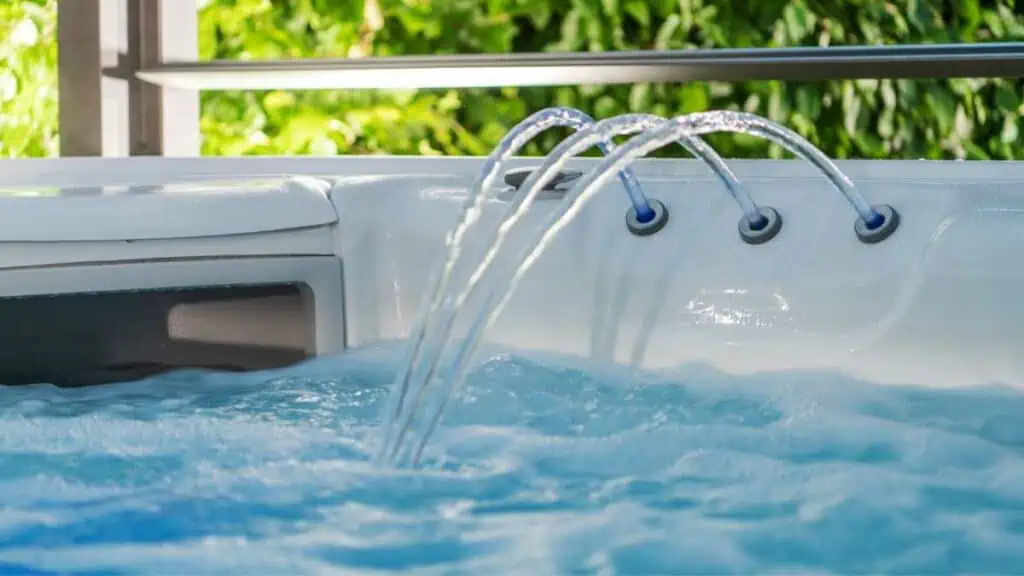
Why does the water in hot tubs evaporate?
We need to understand some physics to understand why the water in your hot tub may evaporate over time. This won’t be too complicated, I promise!
Even if water is not at boiling point, over time, due to the random movement of water molecules, microscopic droplets of water evaporate and leave the container, or in this case, the hot tub. Due to this fact of nature, there will always be evaporation to some extent as long as the water is present in an open-top container.
If the container is closed, such as a hot tub with a cover or lid, less evaporated water will be lost as it will simply condense on the lid and drip back into the hot tub. When left closed for a long time, this is why water bottles end up with small droplets near the top. That is the water that would have otherwise evaporated but was condensed because the lid was closed.
If the hot tub is outside and the cover is left off for a while, particularly during windy weather, the evaporation rate will be higher.
How fast does hot tub water evaporate?
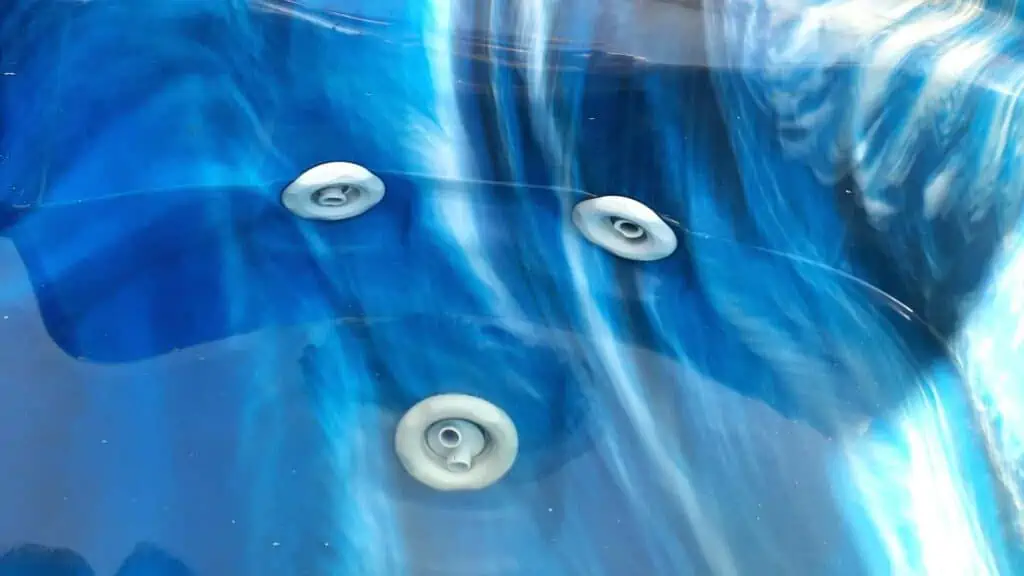
Now that we have established that water in hot tubs tends to evaporate, another question worth exploring is how much water this is. If only a few drops evaporate, then there is not much of a reason for concern.
However, this is not the case. A few factors dictate the speed at which water naturally evaporates. Depending on these factors, the hot tub could lose anywhere between 1 inch and 3 inches in a month.
Hot tub water surface area
Firstly, the surface area of the top of the water. In the case of a hot tub, which is open top, there is a large area where the water meets the air. Thus, this increases the rate of evaporation.
Hot tub water temperature
Secondly, the temperature of the water. We all know that water has a boiling point, and it instantly evaporates when it reaches that temperature. However, water evaporates at lower temperatures too, and this speed increases the higher the temperature.
Given that hot tubs are hot, it is safe to assume that the high temperatures will accelerate the rate at which the water evaporates from them.
The humidity of the air
Finally, the local humidity level. Essentially, the higher the humidity level is, the slower the water evaporates. If the air is very humid, it means the amount of water vapor is also high (obviously), so it can absorb less water vapor. Once the air reaches the saturation level, it can no longer absorb.
If your hot tub is outdoors in an area with a breeze, the humidity level is likely to be lower and evaporation faster.
However, if the hot tub is indoors in a room that is not air-conditioned and lacks ventilation, evaporation will be slower as humidity will be higher.
One thing to note is that the longer your hot tub is in operation, the more water it will lose. This is because the temperature of the water and the jets all impact the evaporation rate, although the hot tub will lose water to evaporation even when it is idle.
How do I stop my hot tub water from evaporating?
Hot tub cover
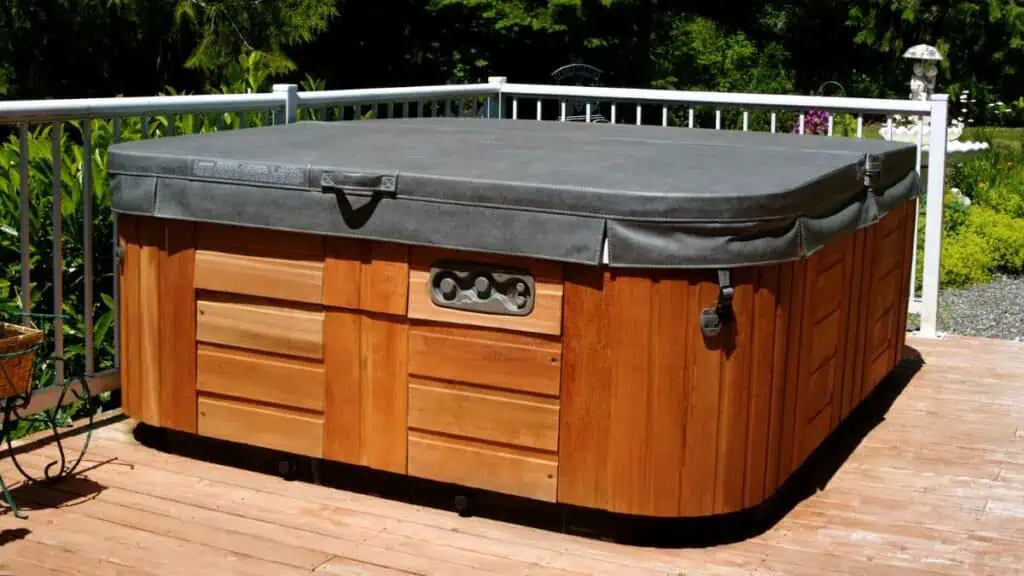
Covering the hot tub with your hot tub cover whenever it is not in use will help considerably reduce the amount of water lost through evaporation.
As stated above, much of the evaporated water will condense on the underside of the cover and drip back into the hot tub.
If you do not have a hot tub cover, I suggest that you buy one. Not only will this save water loss, but perhaps even more importantly, it will help reduce your electricity consumption by maintaining the hot tub’s temperature.
If you do not have a cover, you can obtain expert advice and buy a good-quality cover for your hot tub from Florida Spa Covers, which offers free delivery to many US states.
Florida Spa Covers can supply custom hot tub covers to your specifications, or if you give them the make and model of your hot tub, they can supply one made specifically for it. Check out Florida Spa Covers’ website.
You can also buy replacement hot tub covers on Amazon – various are available to choose from.
Hot tub thermal blanket
A hot tub thermal blanket is similar to a solar pool cover, but it is only smaller enough to fit the hot tub.
It is made of plastic with air bubbles, similar to bubble wrap but more durable. It floats on top of the hot tub water.
It has two functions:
- To trap heat in the water to reduce the heating costs
- To prevent, or at least vastly reduce, evaporation
Although these can be used independently, they will work more effectively if used with a hot tub cover.
They can be bought quite cheaply on Amazon. You can find the one shown above here.
How else can a hot tub lose water?
One thing to note is that evaporation cannot usually account for all the water a hot tub loses. In general, you are likely to lose water from your hot tub in a few other ways.
For example, you may lose water to the splashing and the misting effect caused by the jets in the hot tub. In this case, the water is not being evaporated. Rather, it is lost as spray and goes into the general vicinity.
Another reason you can lose water is because of people entering and exiting the hot tub. The splashing caused by an entrance can make some water pour out of the tub. Similarly, a wet person leaving the tub would take some water with them which they will deposit on a towel when they dry themselves.
Children have a habit of splashing around, which causes water loss.
Together, these three factors will contribute significantly to the water lost by your hot tub.
If your hot tub is losing water overnight and significantly, then you likely have a leak, which could be in the plumbing or a crack in the hot tub shell.
Hot Tub Maintenance Course
I bought Swim University’s Hot Tub Maintenance Course a while after I bought my first hot tub and struggled to maintain it. It was very well spent and has paid for itself many times over the years as I have saved by not needing to use as many chemicals as I did previously.
Listen to our Hot Tub Course Review Podcast:
Can water loss in a hot tub cause problems?
You might now be wondering whether water loss can affect the proper functioning of your hot tub. The answer is yes; it definitely can if not dealt with.
When the hot tub pump and heater are running, the water level is too low, which can cause major problems. The low water level could cause air to be drawn into the filters and jets instead of water.
This may cause overheating and damage to these delicate components. In the long term, this could mean that the hot tub’s parts need to be changed.
Even if the water level has not dropped to such an extent that damage may occur, if the hot tub water level falls below the jets, when the pump is on full, water will shoot out of the jets and probably outside the tub.
The amount of water lost must be replaced so the hot tub does not run on too little water for too long.
How often should you top-up a hot tub?
Generally speaking, you should check your hot tub’s water level once per week. If it is below the required amount, you can top it up.
If your hot tub is outside and doesn’t have a cover, you may need to top it up more often, as that is when evaporation occurs most quickly.



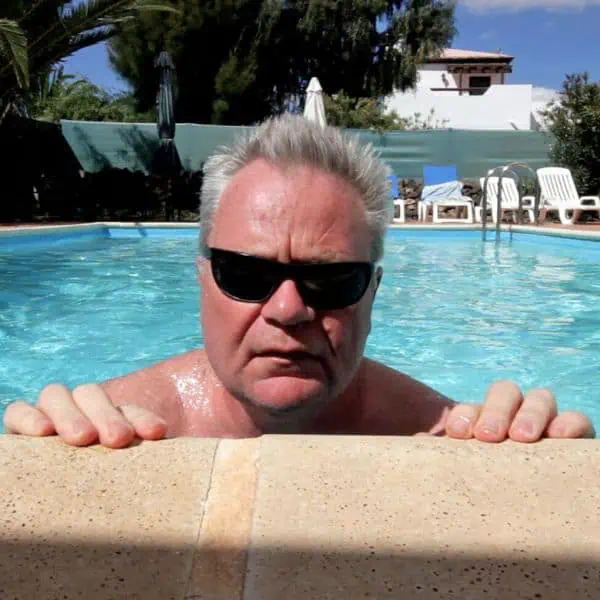

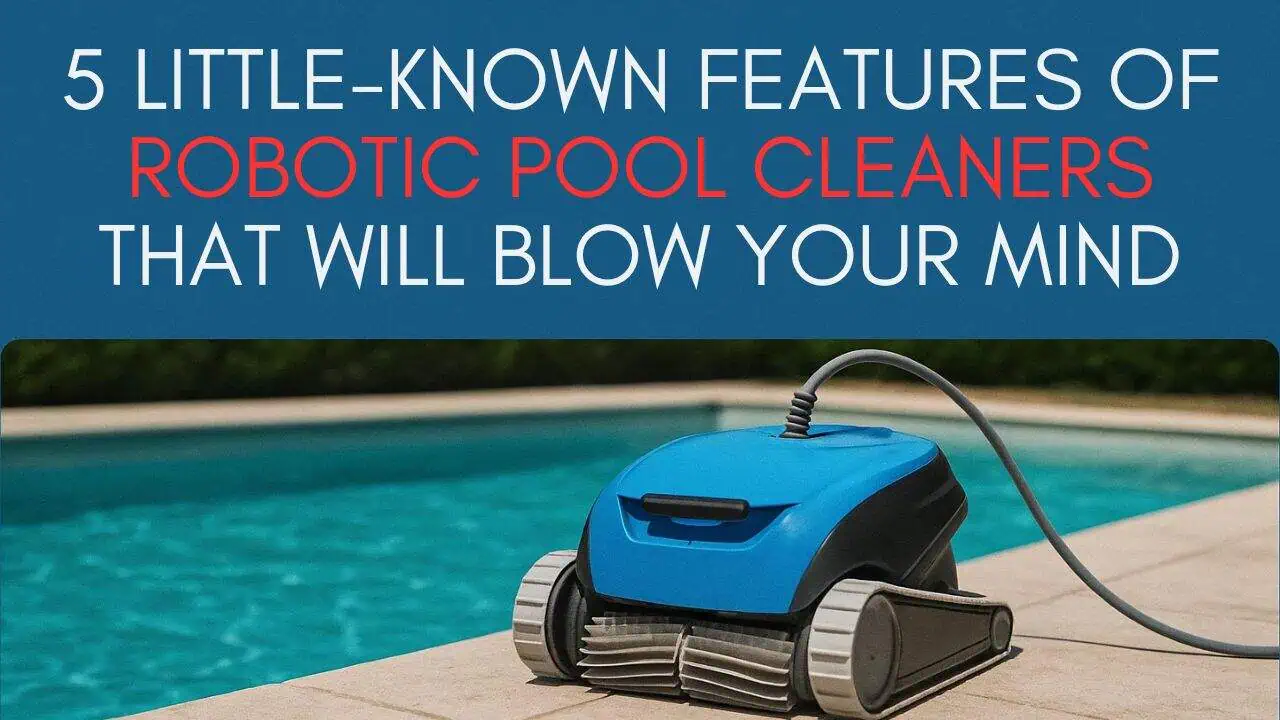
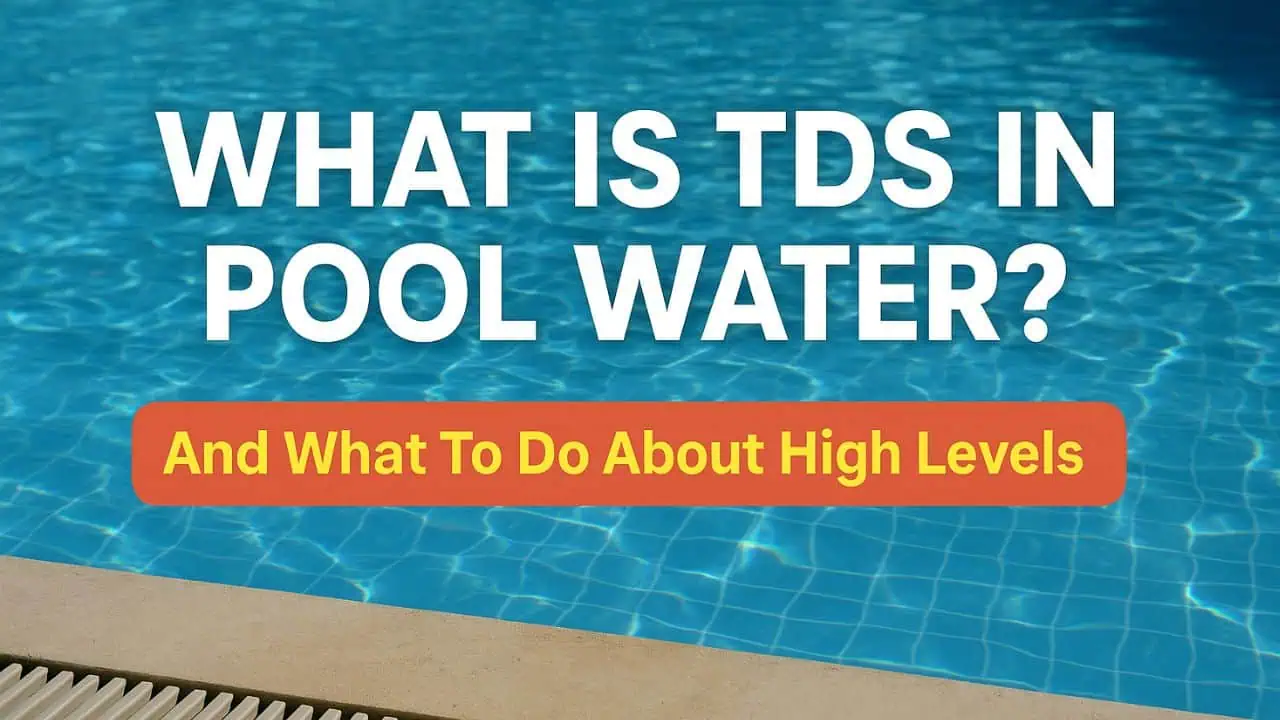
Leave a Reply